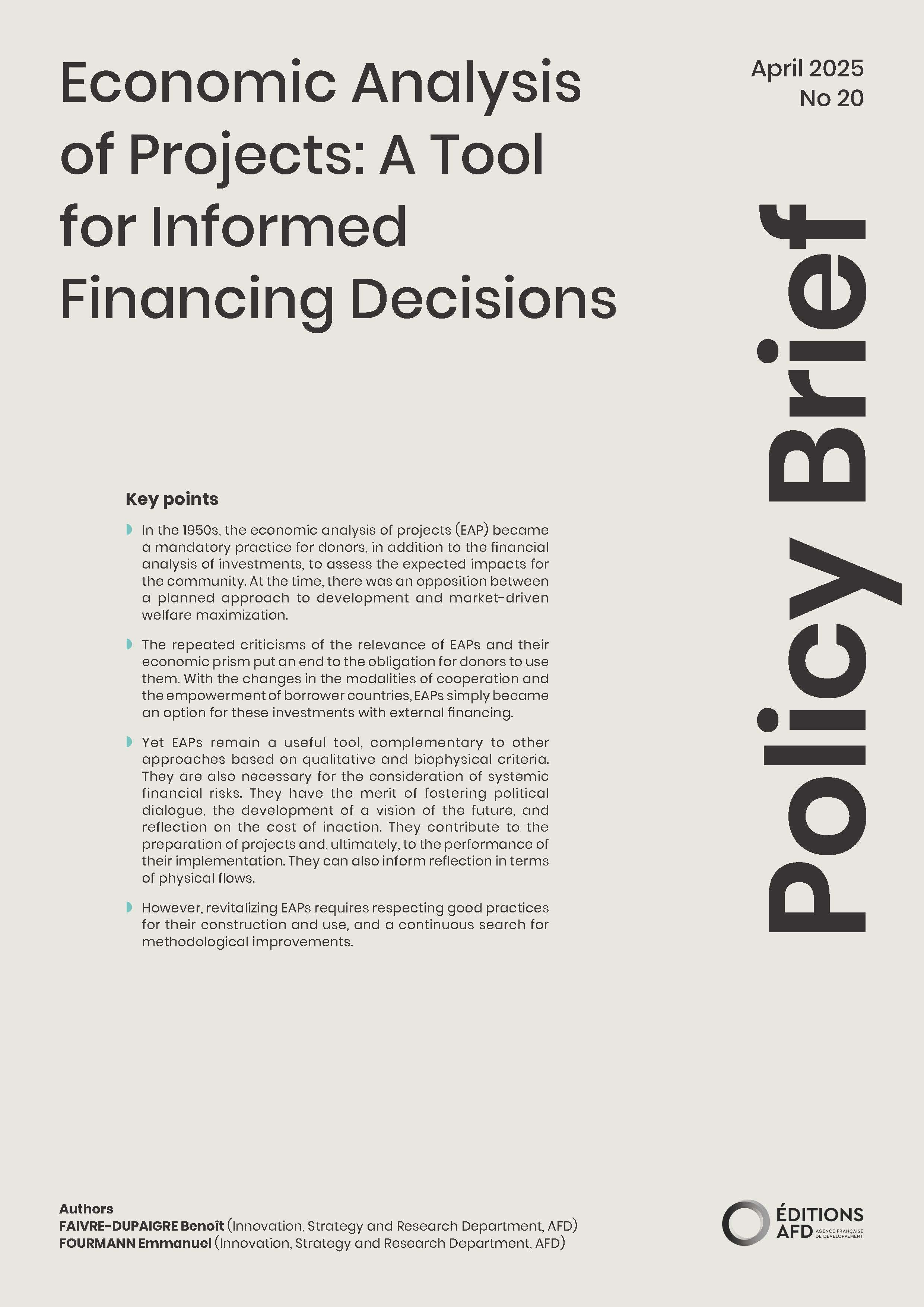Publications and media
Coastal land subsidence in West Africa: an overlooked threat? The case of Lagos and the Volta Delta
Lagos and the Ghana’s Volta Delta face significant downward vertical land motion, a phenomenon called land subsidence, compounding sea-level rise. Several stressors drive subsidence rates of several m...
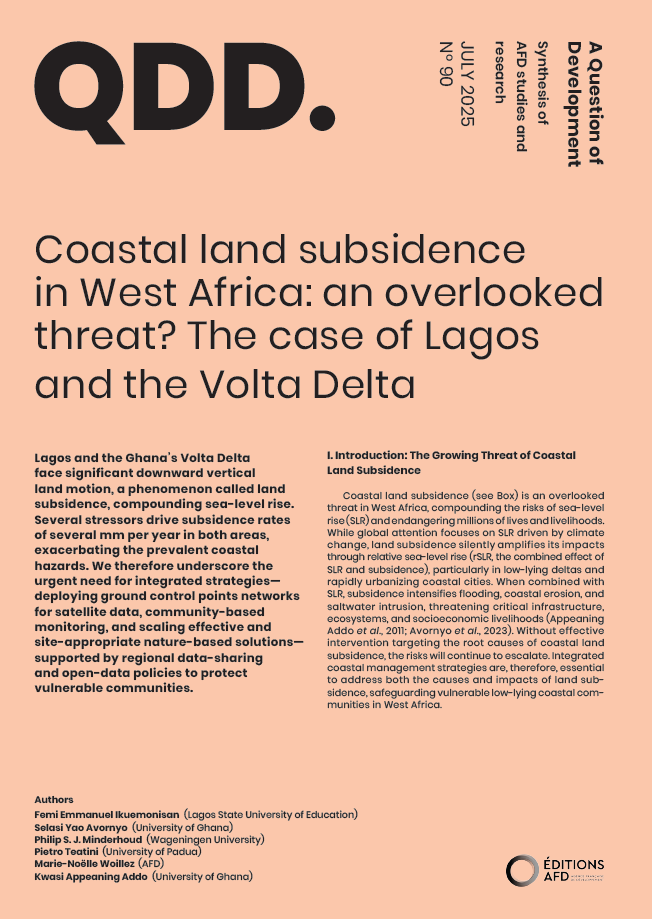
A Guideline to Using Administrative Data
South Africa is undergoing the early stages of an energy transition away from coal. A planned transition requires social protection policy interventions to mitigate potential negative employment impac...
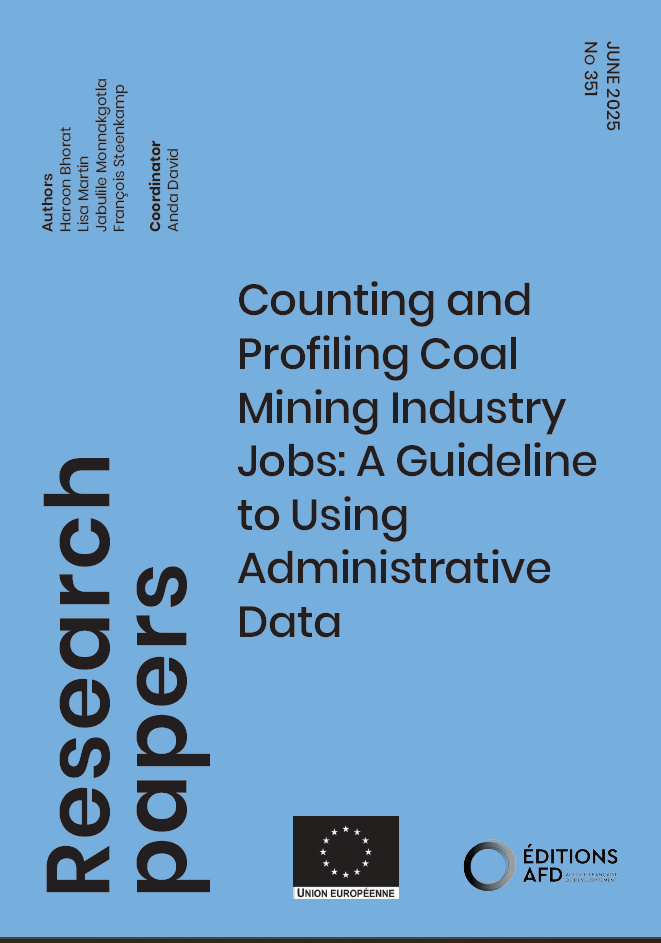
Changes in Temperature and Rainfall Extremes in Vietnam under Progressive Global Warming Levels from 1.5ºC t...
This study analyzes projected climate extremes in Vietnam using 33 statistically downscaled CMIP6 models across global warming levels (GWLs) from 1.5°C to 4°C. Results reveal significant regional chan...
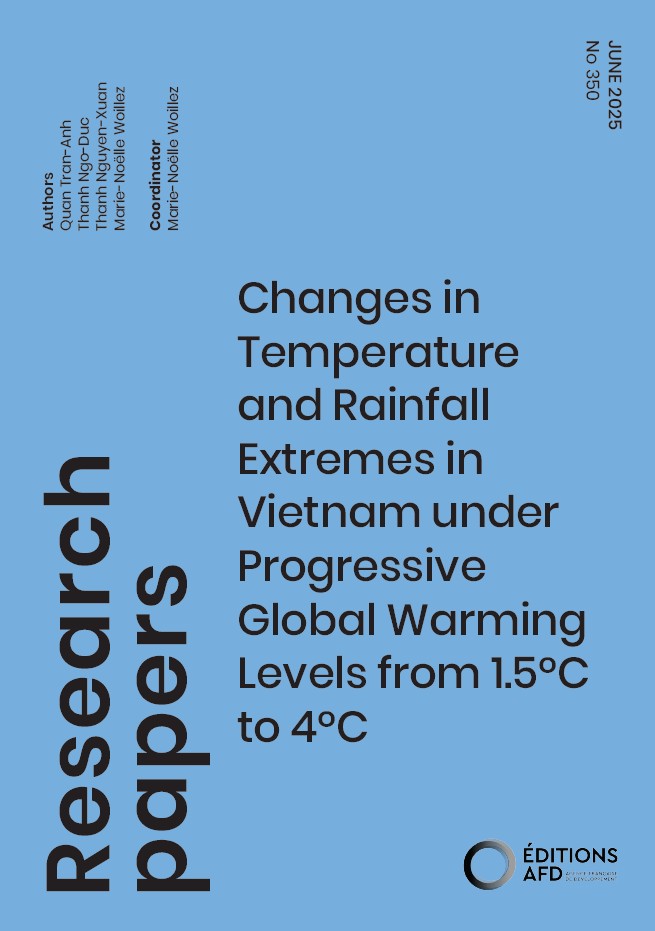
Leveraging International Trade for the Ecological Transition: Quantifying the Drivers of Planetary Boundaries
Using a multi-regional input-output database, we calculate environmental footprints embodied in trade relations related to the different planetary boundaries for different countries and economic activ...
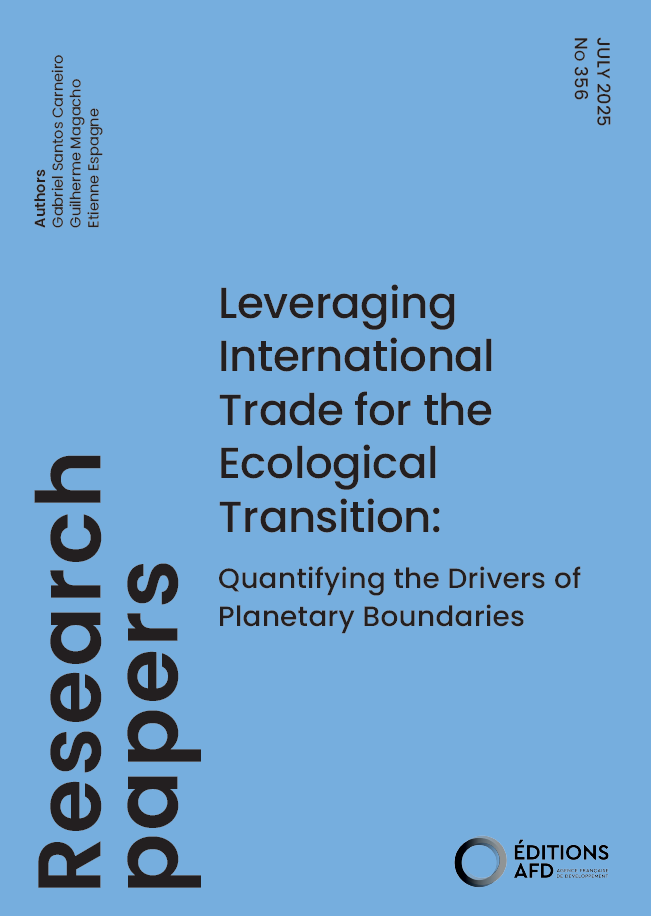
Opportunities to address inequality in transition
South Africa has high levels of persistent, structural inequality. Social ownership has remerged in recent years as an opportunity to address inequality, particularly in the context of the just transi...
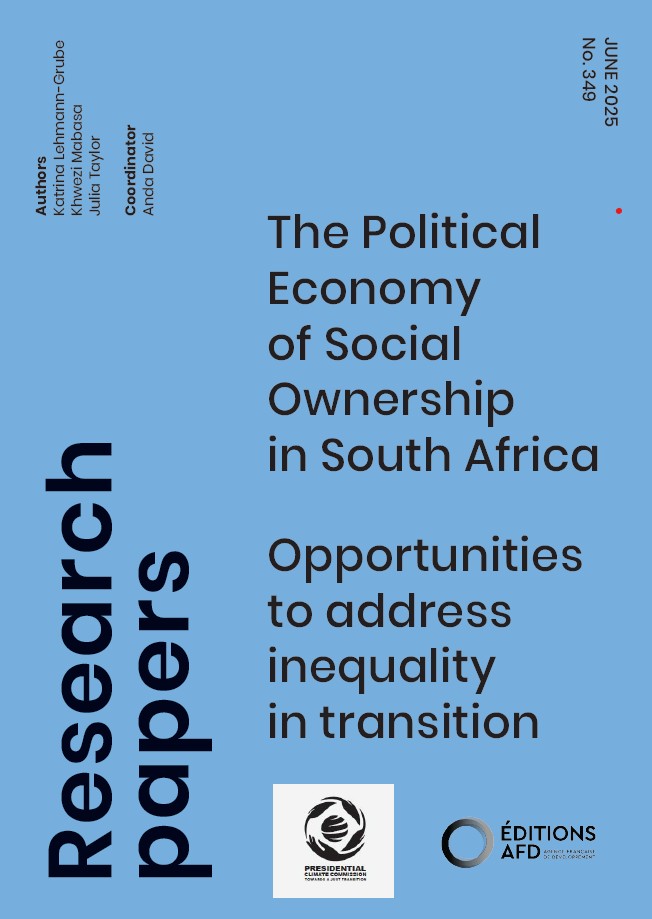
Can social inclusion benefit ecosystems?
With 17,500 islands and 54,000 km of coastline, Indonesia is heavily dependent on its marine ecosystems. However, these areas are currently under strain due to significant demographic, economic, and e...
How Can Ecuador’s Peanut Value Chain Be Strengthened? Challenges, Opportunities, and Pathways for Sustainable...
The peanut is a traditional crop in Ecuador, characterized by its quality and variety diversity. However, its development and exploitation have been limited, largely due to its primarily family-based...
Semestrial panorama 2025#2 - Wayfinding in troubled waters
By their scale and volatility, and even if their application has been temporarily limited, the Trump administration's announcements have begun to destabilize the global economy. Indeed, in addition to...
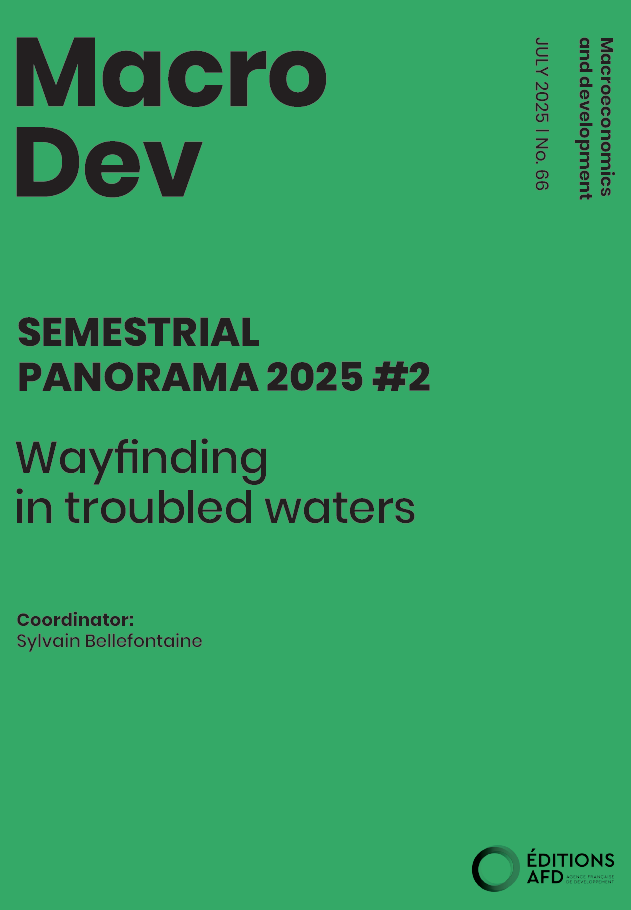
Cuba: a succession of economic and financial crises amid the weakening of the Cuban model
Cuba’s economic model, characterized by low productivity and a lack of diversification, is no longer sustainable. The country is facing an economic, social, and energy crisis that rivals the aftermath...
Extreme heat events in Vietnam must be studied more extensively to develop efficient adaptation policies.
Climate change drives increased extreme heat events worldwide and Vietnam is no exception to this. Exposure to very high temperatures can have serious consequences on health and work capacity, which c...
Beyond "dichotomania"
The invention of the categories of “developed” and “developing” in the mid-20th century created a representation of the world whose impact has been nothing short of extraordinary. So much so tha...
Why is ocean acidification a major political issue?
Ocean acidification, caused by the absorption of carbon dioxide emitted by human activities, is one of the most worrying challenges of climate change. It threatens marine ecosystems, in particular cor...
Published on
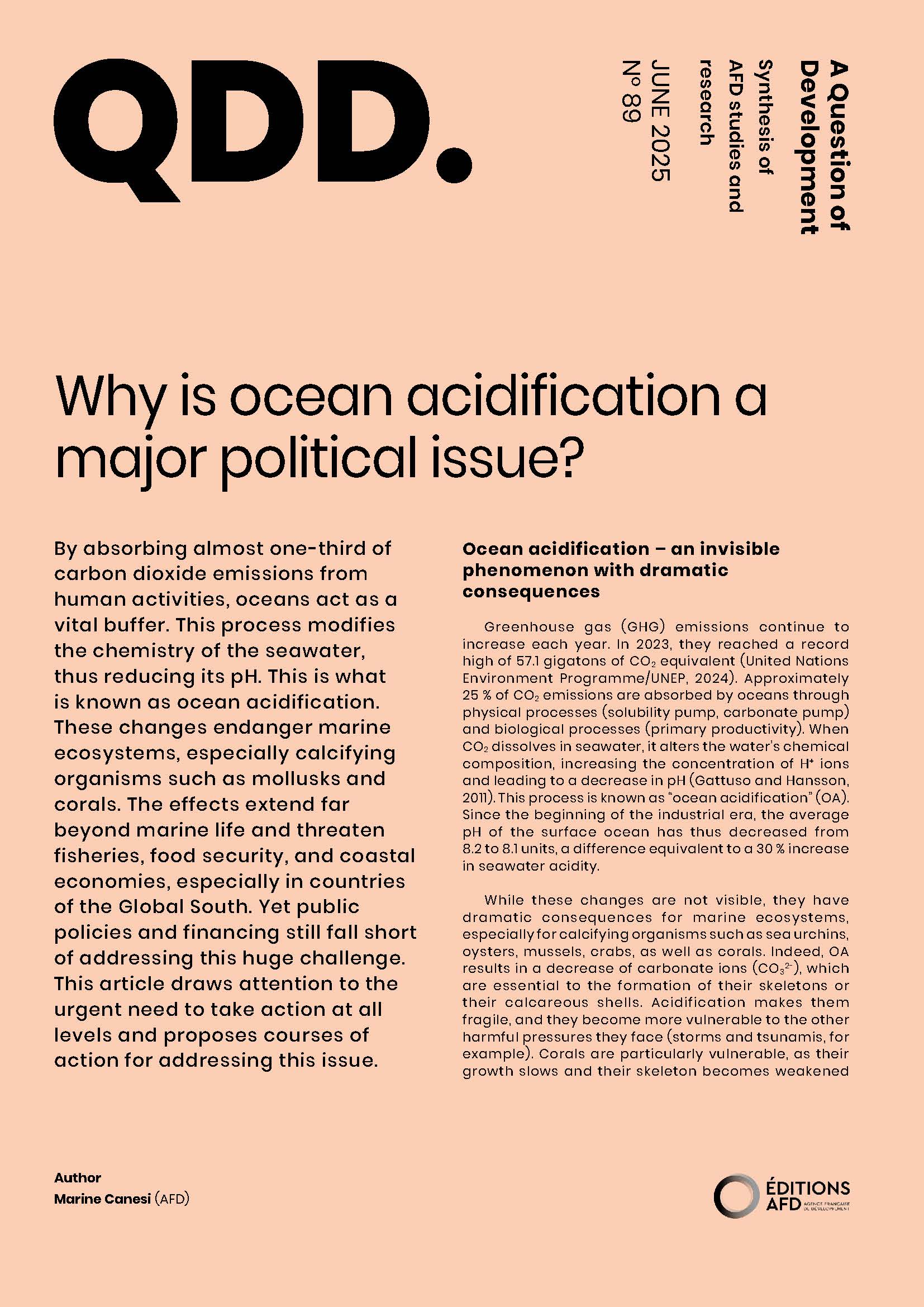
How can nature support resilience planning and climate action in cities?
This policy brief provides feedback on a new rapid approach to identifying (i) climate and natural risks, (ii) potential nature-based solutions (NbS) to address those risks, and (iii) strategies to im...
Published on
Sustainability-Linked Bonds and Credit Enhancement: New Approaches for PDB Financing
The investments needed to achieve the Sustainable Development Goals particularly in emerging markets and developing economies, require the mobilization of more available capital. Public development ba...
Published on
Projections of Heat Stress in Vietnam Using Physically-Based Wet-Bulb Globe Temperature
The wet-bulb globe temperature (WBGT) is a widely used index for assessing heat stress. However, many studies on heat stress under climate change rely on simplified WBGT calculations, which may introd...
Published on
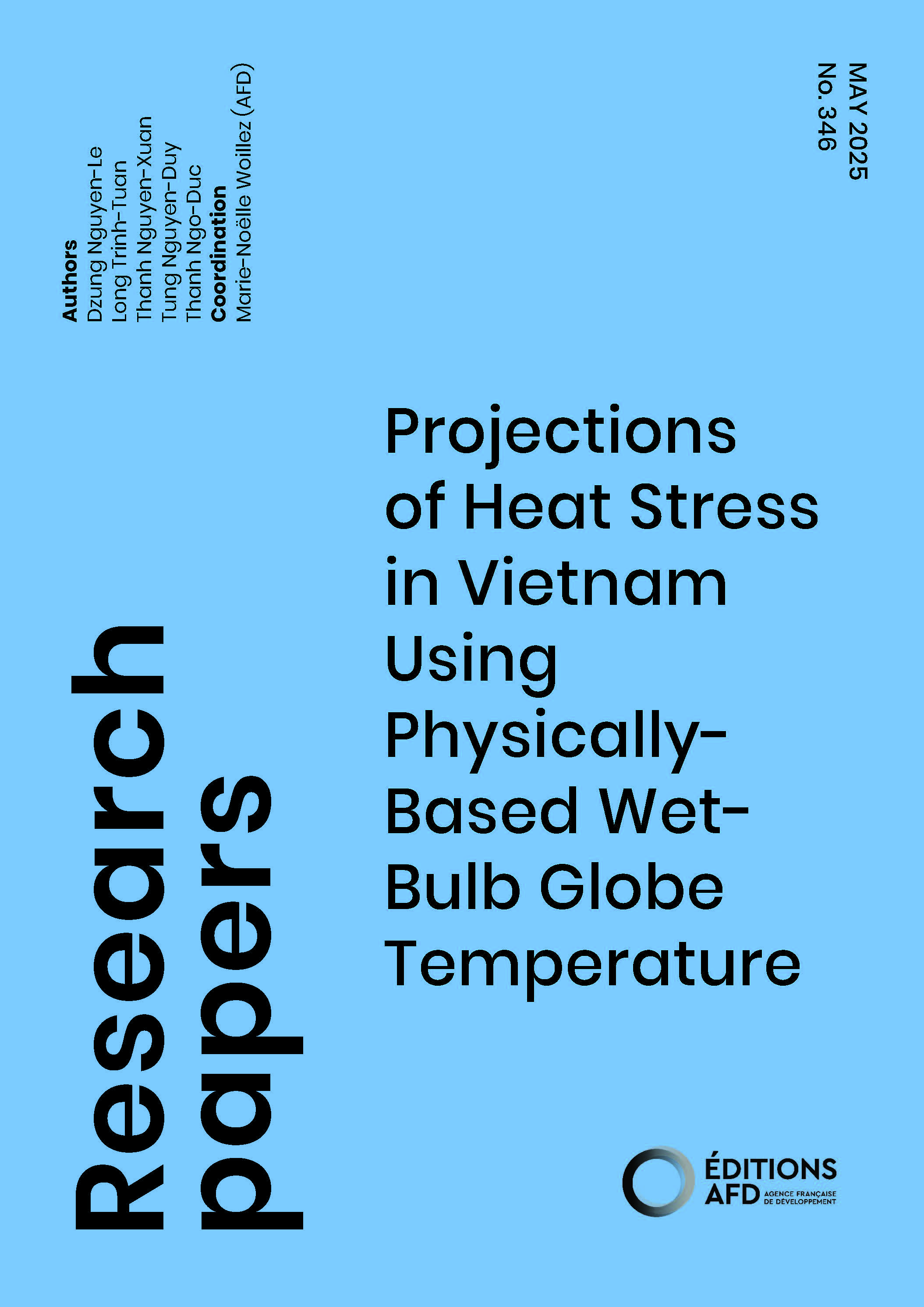
What do civil society actors think about the human rightsbased approach ?
On the eve of the international conference Human rights and sustainable development, which took place at AFD on 8 December 2023, many representatives of civil society organizations from all continents...
Published on
Realizing the Potential of National Development Banks to Boost Sustainable Development Financing with MDB Supp...
The world’s public development banks cannot avoid confronting the global environmental and climate finance crises. Nor should they. This research paper asks, ‘What do national development banks (NDBs)...
Published on
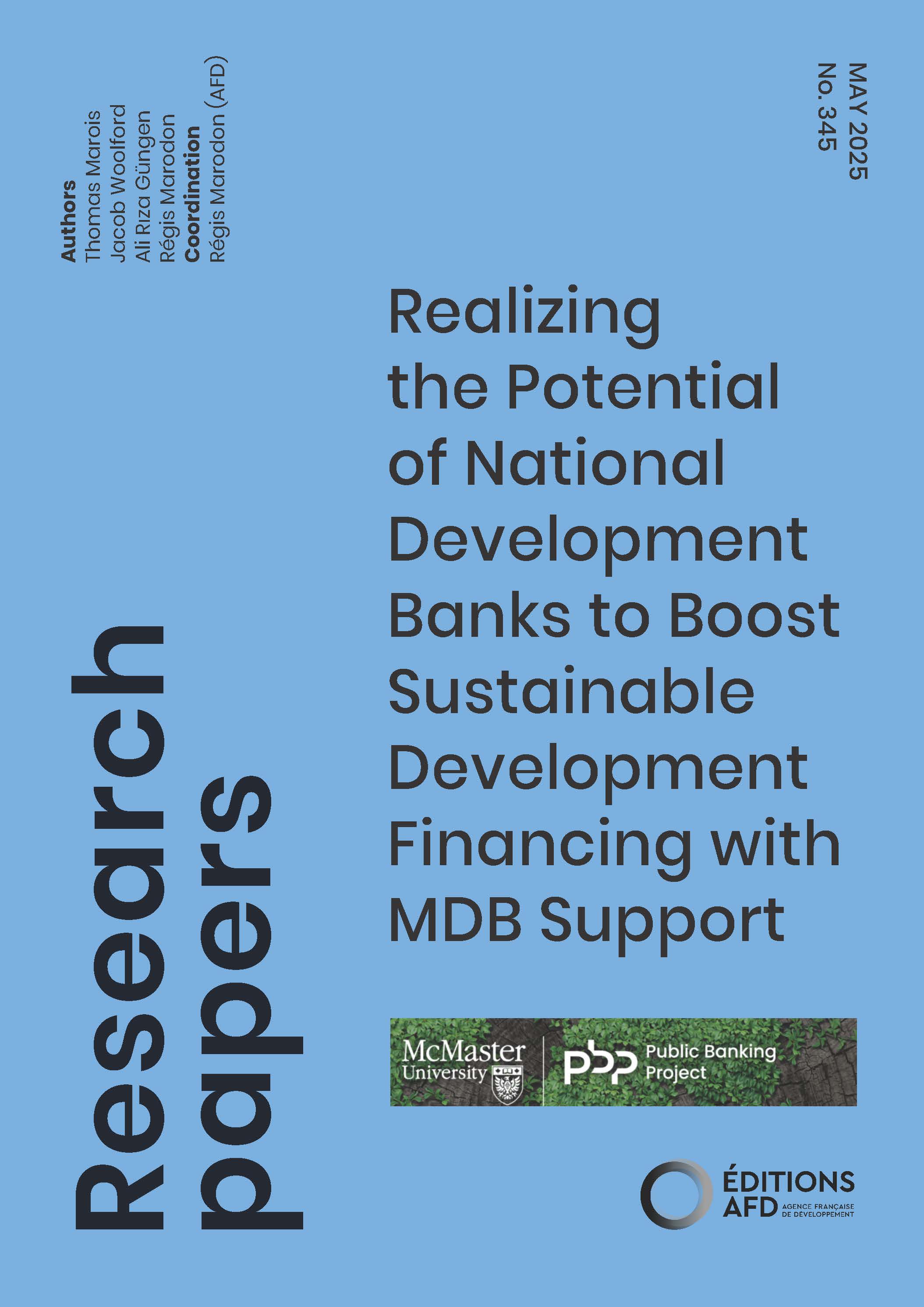
Reimagining Data Governance for AI
This report introduces a practical, community-centered framework for governing data reuse in the development and deployment of artificial intelligence systems in low- and middle-income countries (LMIC...
Published on
Colombia: Squaring energy transition and fiscal credibility to transform the economy
Despite a robust institutional framework and a broadly sound policy mix, Colombia’s economic model is running out of steam. For over a decade, since the end of the commodities supercycle,growth has be...
Published on
Assessment of Future Droughts in Vietnam Using High-Resolution Downscaled CMIP6 Projections
This study investigates drought conditions in Vietnam and its seven sub-climatic regions using the Standardized Precipitation-Evapotranspiration Index (SPEI). SPEI was derived from daily, high-resolut...
Published on
Economic Analysis of Projects: A Tool for Informed Financing Decisions
Project economic analysis (PEA) aims to evaluate ex-ante the various impacts of a project on all stakeholders, beyond its mere financial profitability. Long used by donors, it has come in for a lot of...
Published on
